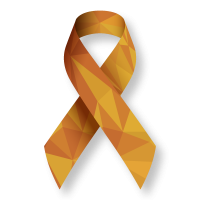How do you tell a partner, friend, or family member you have cancer? Receiving this type of diagnosis can leave you with a mix of complex emotions, so it’s understandable if you’re feeling overwhelmed about disclosing it to loved ones.
While it can take time to process a cancer diagnosis, having people by your side throughout the journey can be both comforting and empowering. It's important to learn how to tell your family you have cancer so you can start building a network of support. If the people closest to you are informed, they'll be able to help you throughout the treatment process.
Benefits of Talking About Your Cancer Diagnosis
Finding ways to talk about your cancer diagnosis with others can benefit you and the people you love. Having an honest dialogue is important because:
- It provides support: When you're going through an emotional time alone, you may start to feel isolated. That's why it's important to open up to loved ones about what you're going through. Even if they have little experience with the challenges of cancer, it can help you to know that someone will be there to offer support. A listening ear and some caring words can go a long way.
- It allows others who are affected to make plans: Cancer affects both the person who receives the diagnosis and the people they love. If you have close family members like a spouse, kids, or parents who care about your well-being, your openness gives them the freedom to make plans and come to terms with their own feelings. A cancer diagnosis may prompt you and a loved one to reconsider financial plans, recreational endeavors, and career strategies.
- It can help add context to actions and emotions: Talking about your feelings can often help you get in touch with them and understand them more clearly. It adds context to what you're feeling, which can often provide a sense of validation. Discussion about a diagnosis with someone you trust can be comforting. In many cases, it plays an important part in your ability to sort through your emotions. You might be surprised by the difference it can make.
Preparing to Tell Your Family and Friends You Have Cancer
If you're trying to figure out how to tell your family you have cancer, there are a few factors to keep in mind. It can help to prepare yourself ahead of time so that you can say the right words properly. Consider the following as you prepare to tell your loved ones about your diagnosis.
Process Your Feelings
Before discussing a diagnosis, you may benefit from taking some time to process your feelings first. If you're still feeling overwhelmed or confused, it can lead to an unproductive conversation when you sit down with a loved one.
Instead of talking to someone right away, consider setting aside a little time for yourself to think about the diagnosis and what it means for you. Keep in mind that you're not obligated to talk to anyone until you feel ready.
Prepare for Their Reactions
You might already feel a complex mix of emotions when you sit down to talk to a loved one about the diagnosis. You also need to be ready to face the reactions and emotions of others. Some friends and family members might first be shocked or concerned, while others may immediately want to know what they can do to help.
If you trust someone enough to talk to them about an illness diagnosis, you probably know that their heart is in the right place. That said, the situation affects them too, so it's important to be prepared for the initial reactions they may have. The good news is that if they bring up something you're not ready to talk about yet, you don't have to discuss it right now.
Expect Difficult Conversations
Discussing a bladder cancer diagnosis can be challenging, even with the ones you love and trust the most. It brings forth many different emotions, which means you may be feeling more vulnerable than normal during conversations.
This is okay. While you can set aside topics that you're too uncomfortable with for later, challenging conversations can sometimes be productive ones. More importantly, they can offer comfort by giving you the knowledge that you have love and support during this time.

Telling Loved Ones About Your Cancer Diagnosis: Choosing Who, When, and How
Once you're fully prepared to have the conversation, it's time to develop a plan. Here are a few choices you may need to make before sharing the news.
Decide Who to Tell First
Revealing a cancer diagnosis is an emotional experience for everyone involved. You’ll need to find words that help educate and inform the person you tell so they understand what you’re going through and how they can help.
Some of the people you might talk to include:
- Partner: If you have a spouse, they'll probably be the one to care for you throughout the process. This means you may choose to tell them first.
- Family: Other family members you tell may include children, parents, or siblings. If you’re unsure how to tell your child you have cancer, we recommend total honesty and transparency. Stay calm, make sure they understand that no one is to blame, and discuss the illness with them in a genuine yet understandable way.
- Friends: Friends can be important sources of support when you’re dealing with an illness, so it may help to choose a few close confidants to share the news with first.
- Extended family: After talking to your closest loved ones, you might decide to have conversations with other members of your family. Or, you can designate other family members to do it instead.
- Coworkers: Depending on the job environment, you may or may not want to talk to your boss and coworkers about the diagnosis. It’s best to do whatever makes you feel comfortable.

Decide How to Tell Them
How you tell your family you have cancer is up to you. It's perfectly acceptable to pick and choose who to talk to, where to talk, and how you want to share the news. For instance, the conversation may take place:
- In public: If it feels more comfortable for you to talk in a public setting, that’s okay. You may feel less pressured while out in the open or surrounded by others.
- In private: Private setting may be more effective because it can provide a secure, quiet environment to talk about serious topics with loved ones.
Decide When to Tell Them
First and foremost, it's important to take your time and tell loved ones about the diagnosis at your own pace. The challenge is that it can be hard to decide when it is appropriate to bring up such a sensitive subject.
Often, it's best to plan ahead and set aside a specific appointment with someone to have the discussion. This gives you time to prepare, and it helps prevent interruptions from getting in the way. If you're planning to broach the subject more casually, it's important to stay mindful of special occasions such as holidays, birthdays, and other major events.
Decide Which Information to Disclose
When you talk about your diagnosis, you have full control over what the other person learns. You can provide as many or as few details as you want, and it’s okay to set boundaries on what to discuss. Some of the information you provide might include:
- Type of cancer: This is likely the first, and possibly the easiest, piece of information you’ll provide when revealing your diagnosis.
- Prognosis: Your decision to talk about prognosis could depend on the person. If it’s a more sensitive topic, feel free to take your time.
- Treatment plan: You can say as much or as little as you want about the treatment plan. Giving regular updates through websites, emails, or group messages can help keep people in the loop if you’re tired of explaining the details.
Talking About Your Diagnosis Will Help You Build a Support Network
While not telling your partner, family and friends about your diagnosis may feel easier at first, it's important you don't isolate yourself. Talking with loved ones will help them plan to support you when you need it most.
Cxbladder is a Non-invasive Surveillance Alternative for Those Recovering from Bladder Cancer
If you're recovering from treatment for non-muscle invasive bladder cancer and undergoing regular surveillance cystoscopies, we recommend you ask your doctor about Cxbladder. Cxbladder is an accurate and non-invasive surveillance alternative designed to rule out the return of bladder cancer. The test provides reliable results with a single urine sample, helping to reduce the frequency of cystoscopy required.
Learn more about Cxbladder Contact us for more information






